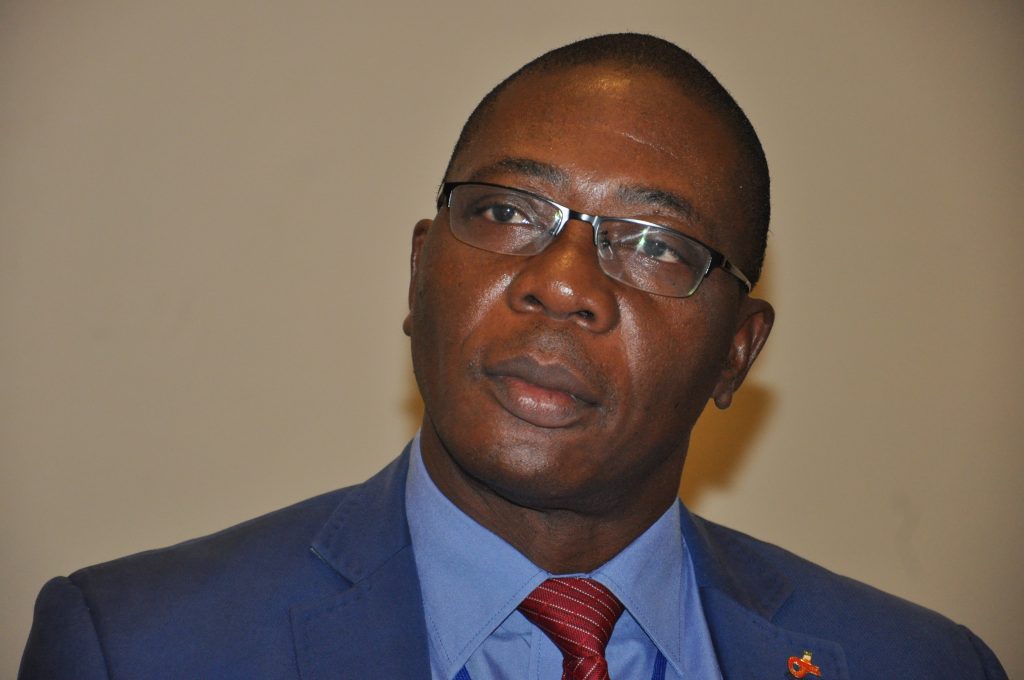Interview with Mr. Richard Allo, Executive Director, Association Ivoirienne pour le Bien-Etre Familial (AIBEF), IPPF’s Member Association in Côte d’Ivoire
What are the challenges facing your Member Association?
AIBEF is experiencing several challenges due to the COVID 19 pandemic in Côte d’Ivoire. There has been a drop in attendance at AIBEF clinics as well as our franchise clinics. As a result, our clinical and laboratory revenues have declined. Since large gatherings have been prohibited, our Learning Centre, which hosts many workshops and meetings in Abidjan, is currently not in operation. The AIBEF restaurant which is also an income earner for our MA by providing food and beverages during meetings at the Learning Center is also closed.
The midwives who run the maternity unit at our clinic in Abidjan (which operates on a 24-hour basis) are asking for an increase of their risk premium as a result of COVID-19. Increasing bonus for the midwives will reduce the income generated from the clinic while rejecting their request may lead to the closure of the maternity during COVID-19 pandemic. All these factors haveled to the reduction of our overall revenue by at least 90%.
What is your MA doing differently to deal with the situation? How have you adjusted the way you implement your business to ensure the continuity of your services to your customers?
We have put in place a contingency COVID-19 plan for AIBEF to protect our staff from contracting the virus on the one hand and to allow the continuity of the provision of our sexual and reproductive health services on the other. We have established a monitoring group for the plan and started a competition for regional branches and services during the COVID-19 period. This healthy competition seeks best practices to improve service delivery and increase our revenues which are have gone down. As result, services are always available and we look at the statistics to correctly respond to the effects on the number and type of services offered.
Have you developed a new way of doing things? For example, new innovations, applications, hotline numbers, etc.
We have been engaging in awareness creation on SRHR and COVID 19 through talks with peer educators and community health workers via WhatsApp and Facebook.
Is your MA undertaking information campaigns to provide information on SRHR during COVID-19?
Our MA has been participating in campaigns that aim to provide SRHR information through a project titled “Supporting access to reproductive health services and maintaining continuity of SRH services for populations affected by COVID-19 in the health districts of Abidjan, Côte d’Ivoire,” which supported by UNFPA.
We have been invited to television and radio interviews. However, we declined because of the current political environment in the country due to the forthcoming presidential elections in October 2020. We have been using social media, Facebook, and WhatsApp to raise awareness on SRHR and COVID-19.
What partnerships have you formed with different organizations/stakeholders in a collaborative response to the pandemic?
We have partnered with various government ministries including the Ministry of Women, Family and Children; the Ministry of Health and Public Hygiene; the Ministry of Youth Promotion and Employment; and the Ministry of Solidarity and Social Cohesion. Our collaboration mainly focuses on relaying the government’s awareness information on COVID-19 via our social media networks. We are also working closely with UNFPA and the Red Cross in implementing our member association’s workplan on COVID-19.
How do you work with the government/local government/police to ensure that emergency obstetrics are handled during curfew hours?
Our maternity services are available 24 hours a day and the government has set up a system with the police (hotline numbers) for women in case they go into labour or have other emergencies during curfew hours.
What are the experiences of your health workers and volunteers (including youth) who are at the forefront of the response to COVID-19?
The staff at our clinics have thermometers (unfortunately not all of them and we continue to liaise with suppliers to get more) to take patients’ temperature as they enter the clinic. Once a suspicious case is identified, the Chief Medical Officer calls the hotline number of the Ministry of Health and Public Hygiene, which in turn arranges for the transfer of the patient to a government COVID-19 care centre. AIBEF is not taking care of COVID-19 patients.
Young volunteers are involved in raising awareness of COVID-19 and SRHR via social campaigns. AIBEF’s National President, Professor Welffens-Ekra Christiane, donated 1000 masks and a carton of sanitizers to our staff for the prevention of COVID-19. We hope other volunteers will make a similar gesture.
